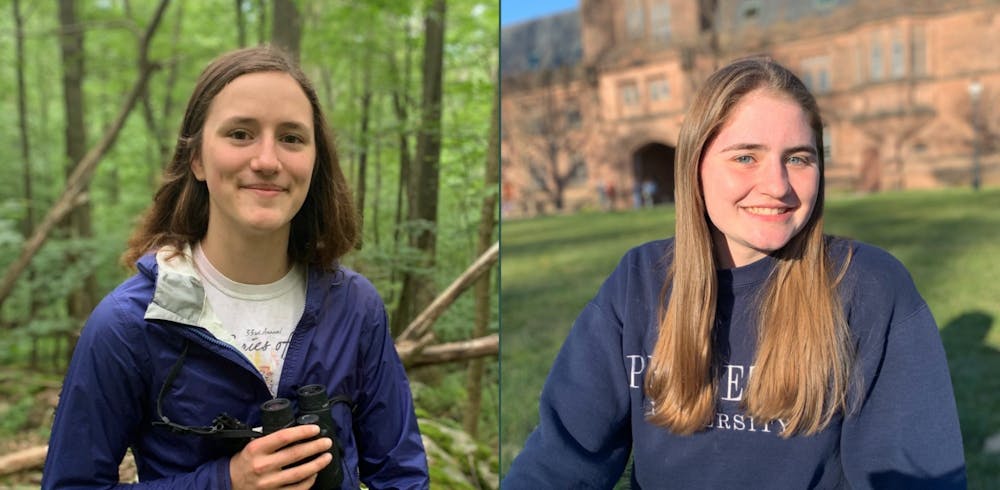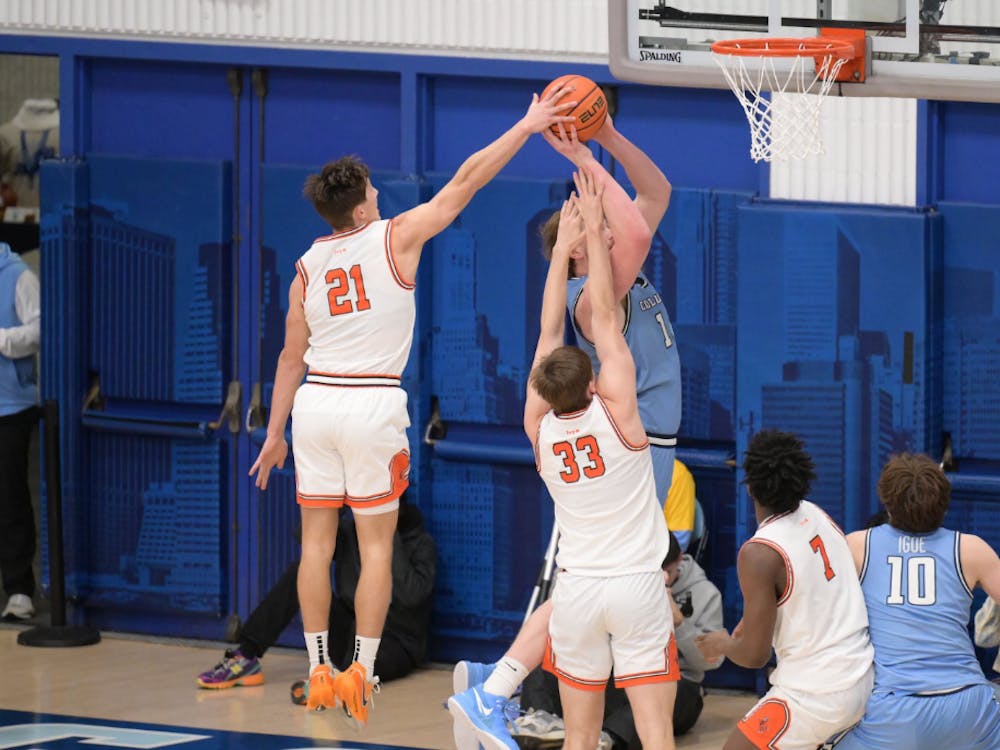Two University students, Jessica Lambert ’22 and Claire Wayner ’22, have been selected as 2020 Udall Scholars; they will each receive up to $7000 for their leadership, service, and academic excellence on issues related to Native American nations or to the environment.
Lambert, a citizen of the Choctaw Nation concentrating in anthropology, received a Tribal Public Policy scholarship. Wayner, a civil and environmental engineering concentrator, received an Environmental scholarship.
Wayner is an Opinion columnist for The Daily Princetonian.
On campus, Wayner actively works to reduce the campus’s environmental footprint. As the president of the Princeton Student Climate Initiative, she has advocated for a carbon neutral referendum and researched ways to decarbonize American energy supplies.
“I have not seen immediate payoffs for some of my environmental work on campus, but this recognition is a validation that I am going in the right direction to improve sustainability,” Wayner said.
Wayner’s interest in the environment started from a young age. Her affinity for the outdoors and childhood ventures in a stream by her house eventually led her to watching birds, an experience Wayner said changed her life.
Her study of different environmental issues spurred Wayner to analyze the effects of such problems on people and culture. Sustainability, in Wayner’s words, “is more than just saving trees and birds” but “living in harmony with nature in a way that benefits human society as much as the natural world.”
Wayner’s interest in protecting the natural habitats that birds lived on prompted her to create the nonprofit Baltimore Beyond Plastic, which she co-founded in high school. With 300 members, the organization focuses on plastic pollution.

According to Wayner, her high school peers supported her advocacy, but students at the University have shown more resistance, in part, she said, because of the privilege and ease with which sustainability can be forgotten.
“Environmental destruction is so emotionally traumatizing that people find it easier to ignore and detach the destruction that is going on and in the process, live their lives in a more unsustainable manner,” Wayner said.
However, Wayner said the apathy she faced has only strengthened her resolve and commitment to environmental work. She imagines a future working for an environmental nonprofit.
Similarly to Wayner, Lambert’s interest in the environment began before her time at the University.

Lambert once aspired to attend medical school and discussed her plans with her Choctaw chief, who alerted her to an environmental issue affecting the Choctaw community in McAlester, Okla.
The United States-owned McAlester Army Ammunition Plant (MCAAP) detonates bombs regularly. Members of the local community claimed those detonations may have led to an increase in cases of cancer, although The Oklahoman reported that “[t]he state Department of Health and the Centers for Disease Control and Prevention show no abnormal incidences of cancer or cancer clusters for the communities surrounding or related to MCAAP.”
As she prepares for her senior thesis, Lambert plans to address and study the McAlester community and what effects the nearby detonations may have had. In the next two years, Lambert will collect environmental data and incorporate the voices of the Choctaw Nation into the types of samplings necessary to yield results.
“Since I don’t live out there and interact with the contaminants, I’m here to provide the means by which to get these samples and test results, and to work with them in shaping the data that can move forward into making policy changes,” Lambert said.
At the University, Lambert co-founded the Indigeneity at Princeton Task Force, which seeks to address what she believes to be a lack of support for Native students on campus. In the past few semesters, the task force researched the reasons why the University has only a few Native studies classes and compared the University’s support system of Native students to peer institutions.
Lambert asserted that Native studies are largely absent in American pre-college education.
“Our education in middle and high school is not only lacking in American Indian studies but when they do mention us, it’s so stereotypical and has such bad representation,” Lambert said.
As Lambert navigates the rest of her career at the University, she anticipates deconstructing the layers behind collecting data, conducting ethnography, and talking to the tribal inhabitants of McAlester.








